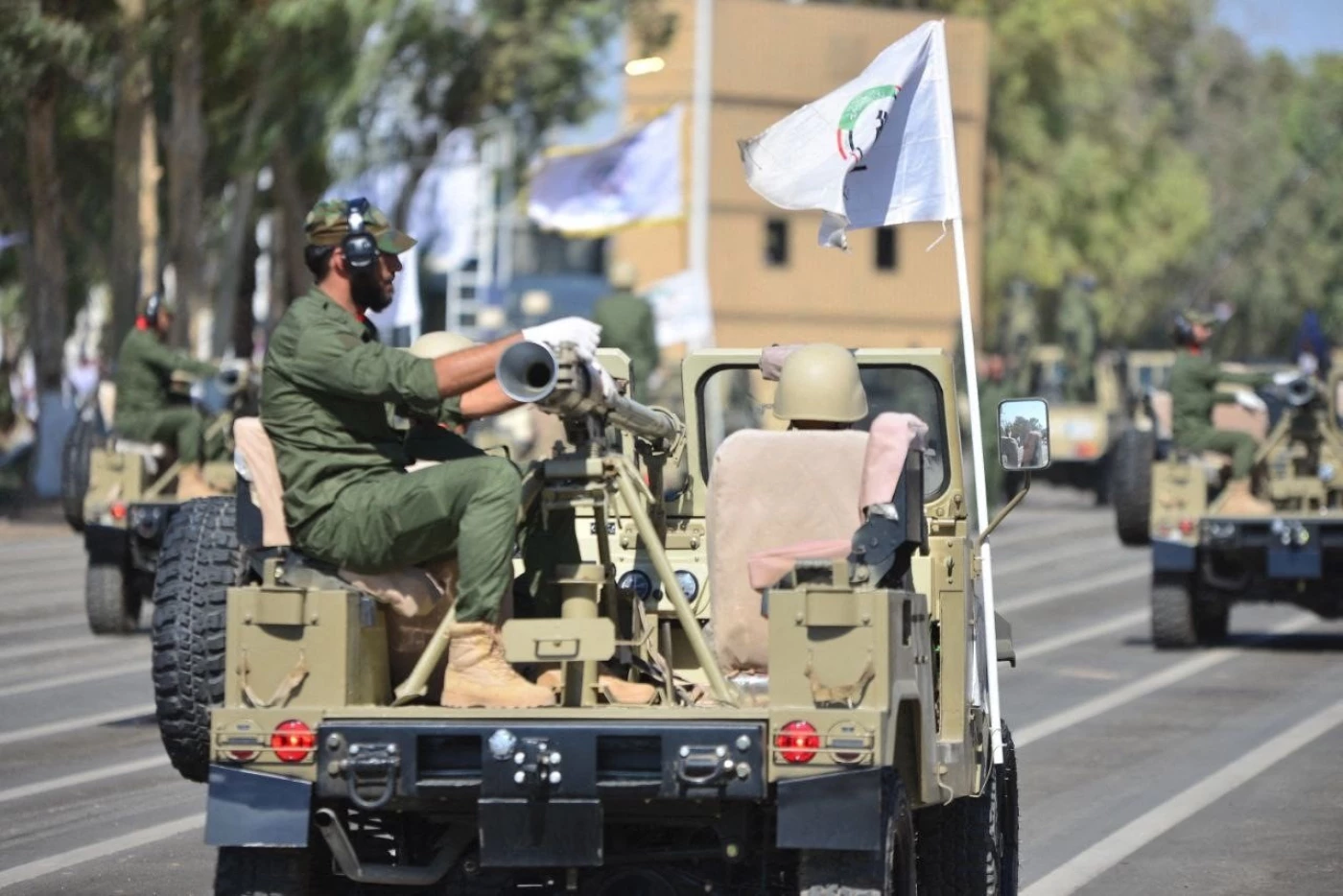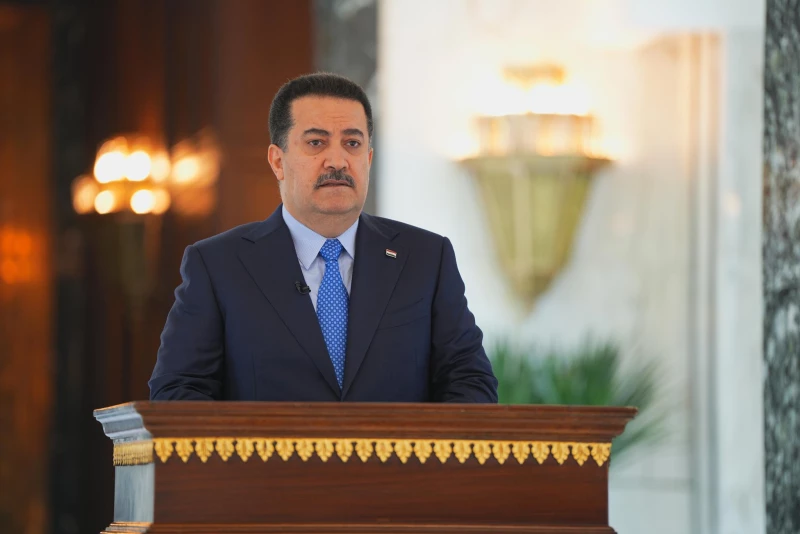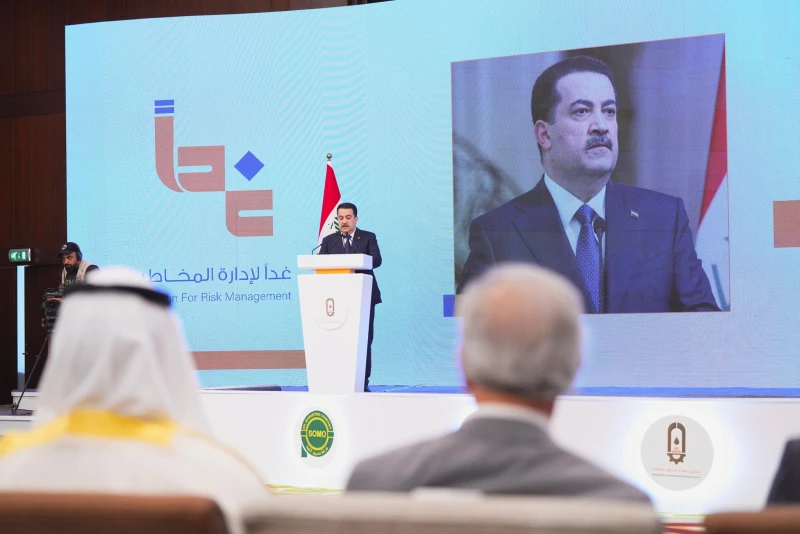ERBIL, Kurdistan Region of Iraq - Iraqi lawmakers are locked in a heated debate over proposed amendments to the Service and Retirement Law for the Popular Mobilization Forces (PMF), a key paramilitary organization. While supporters argue that the legislation is necessary to formalize and regulate the PMF, opponents see it as an attempt to sideline current leaders and weaken the institution. The controversy has sparked divisions within the Coordination Framework, a coalition of Shiite political parties.
The Sadiqoun parliamentary bloc, the political wing of Asa'ib Ahl al-Haq led by Qais al-Khazali, has pushed back against claims that the proposed law seeks to restructure the PMF or force prominent commanders into retirement.
“Some are trying to suggest that this law is designed to dismantle the PMF’s structure and remove key leaders from their positions. This is simply not true,” MP Rafiq al-Salhi told The New Region.
Salhi said the law aims to regulate the PMF’s operations similarly to other security and military institutions while ensuring the rights of its fighters. The legislation also seeks to address the issue of leaders exceeding the legal retirement age.
“The only real disagreement concerns the retirement age,” he said. “There are proposals to give the Commander-in-Chief of the Armed Forces the authority to extend service based on national interest.”
Despite tensions, Salhi dismissed speculation that the debate could fracture the Coordination Framework.
“Our differences are manageable. The framework has faced greater challenges before and remained united,” he said.
The Taqadum Party, led by former Speaker of Parliament Mohammed al-Halbousi, attributes the delay in passing the PMF law to internal conflicts within the Coordination Framework.
“Sunni political forces have no objections to the legislation,” said party member Mohammed al-Douri. “The dispute is entirely within the Coordination Framework.”
Douri said his party supports the law, arguing that it will enhance the PMF’s structure and prevent individuals from staying in positions beyond their legal retirement age.
“This infighting has disrupted recent parliamentary sessions and will likely delay future ones. Lawmakers need to resolve the dispute quickly so Parliament can function properly,” he said.
Political analyst Mohammed Ali al-Hakim said the fight over the PMF law is part of a broader power struggle within the Coordination Framework over leadership positions in the paramilitary force.
“There is an intense competition within the Coordination Framework over control of the PMF and its top positions,” Hakim told The New Region. “The law is being used as a tool to remove the current leadership and allow new figures from rival factions to take over.”
He warned that the dispute could further fracture the Coordination Framework, especially as Iraq heads toward parliamentary elections.
“With elections approaching, each faction is using every available opportunity to undermine its rivals. The PMF has become a key battleground in this early electoral struggle,” he said.
The State of Law Coalition, led by former Prime Minister Nouri al-Maliki, and Sadiqoun, are among the strongest backers of the PMF law. Both blocs have boycotted parliamentary sessions to protest the exclusion of the bill from the legislative agenda, leading to quorum issues.
The legislation, first proposed in 2014, remains one of Iraq’s most politically sensitive issues. The PMF played a decisive role in the fight against ISIS, cementing its influence in the country’s security and political landscape.
The main sticking point is how the law will define and apply the legal retirement age for PMF members. Some speculate that passing the law could pave the way for integrating the PMF into the Iraqi army.
Proponents argue that the current parliamentary session presents the best opportunity to pass the law, given their numerical advantage. They fear that future political shifts could lead to the PMF’s dissolution.
Thaer Mokheef al-Jubouri, an MP from the State of Law Coalition, said the law needs adjustments, particularly regarding the retirement age.
“PMF leaders could continue serving as advisors within the organization,” he said.
Jubouri also confirmed that there is a proposal to merge the PMF with the Iraqi military, though he noted that the PMF is divided between officially recognized units and independent factions.
Addressing speculation that the United States is blocking the legislation, Jubouri dismissed such claims.
“The US is an occupying force. It has no influence over Iraq’s decisions,” he said. “Most political blocs support the law; the only debate is over its specific provisions."


 Facebook
Facebook
 LinkedIn
LinkedIn
 Telegram
Telegram
 X
X



